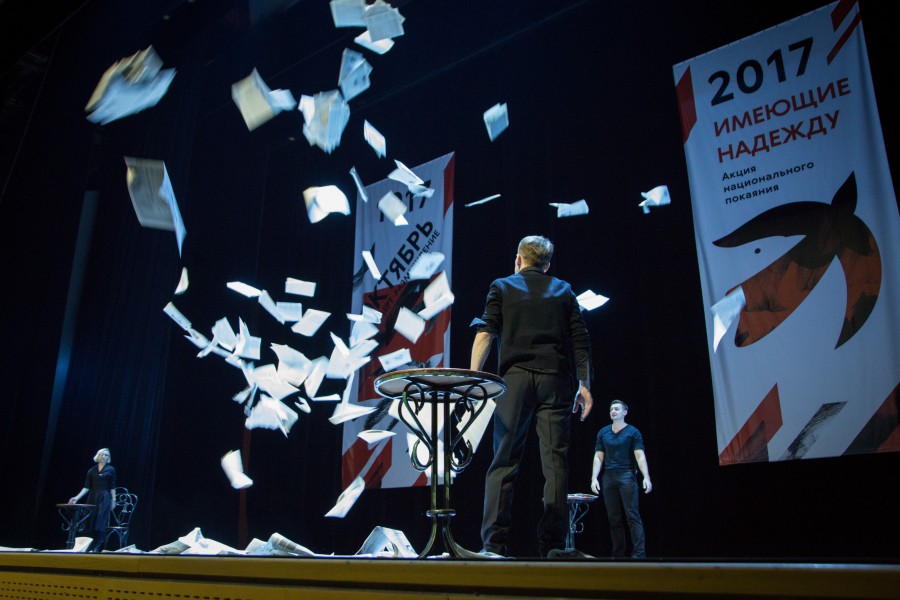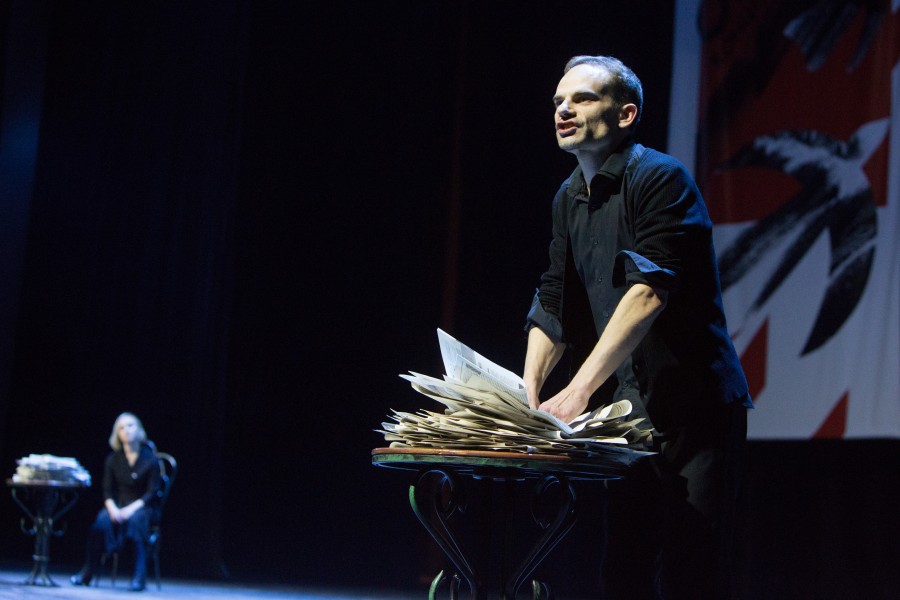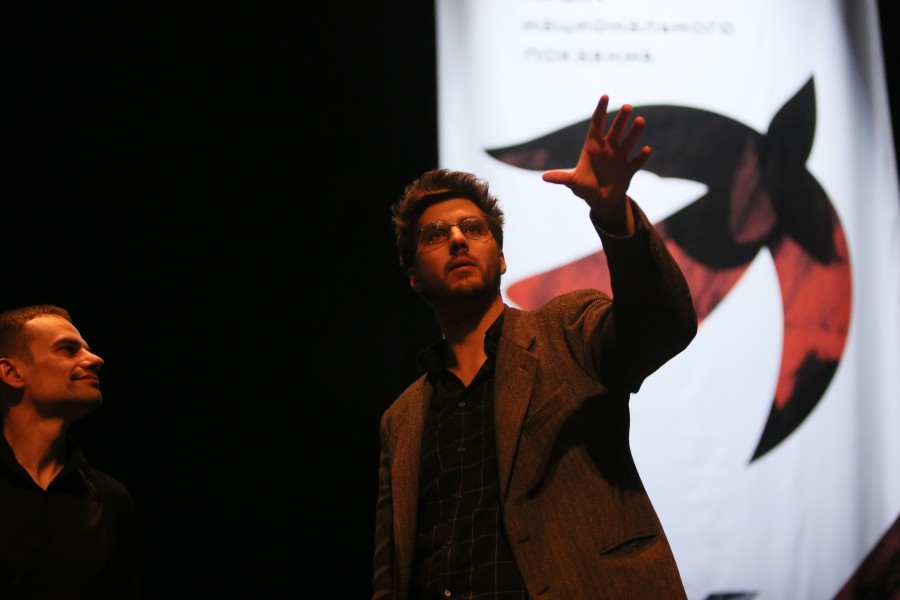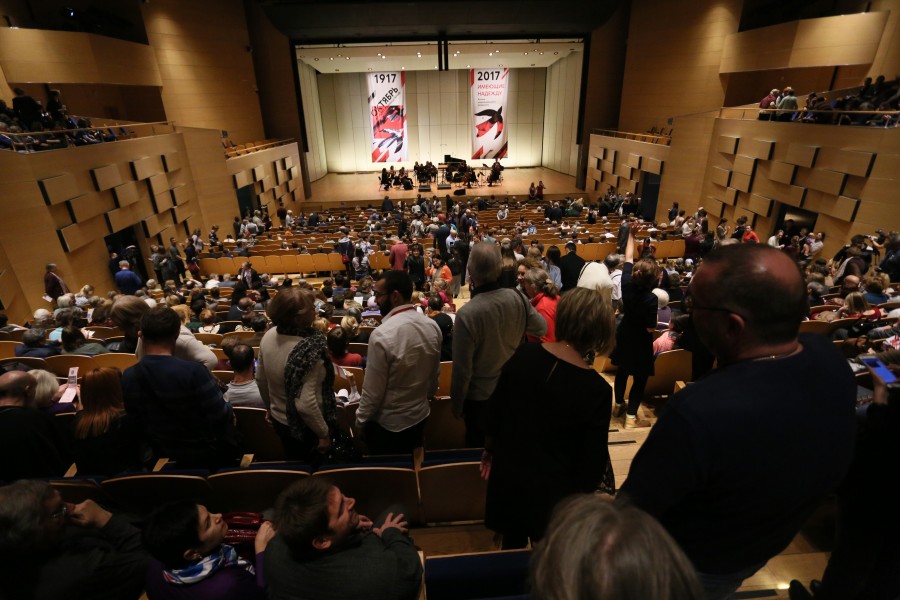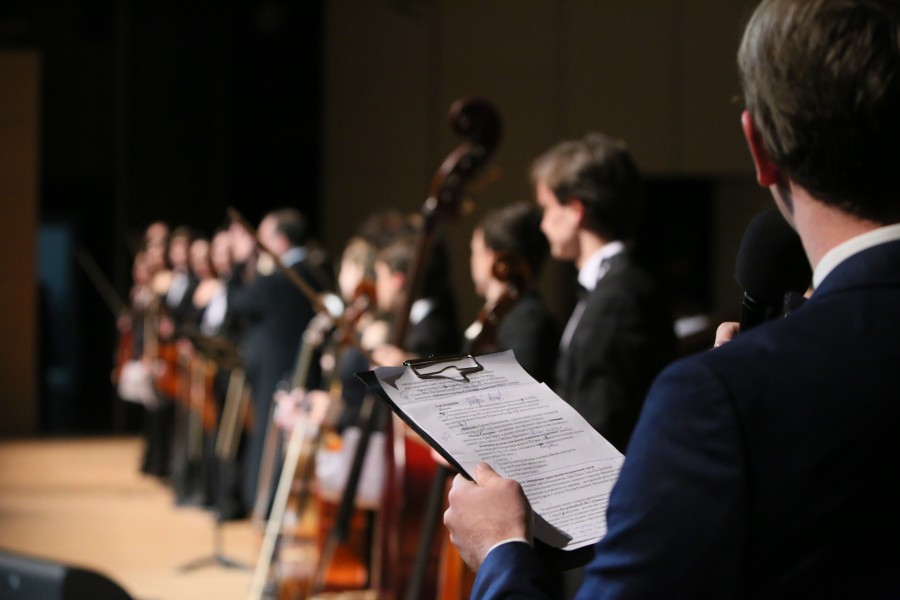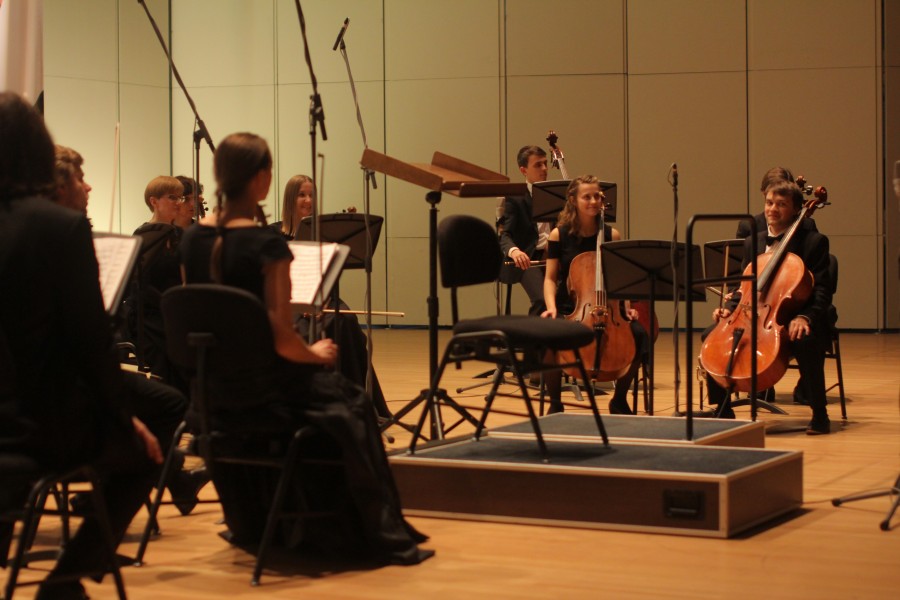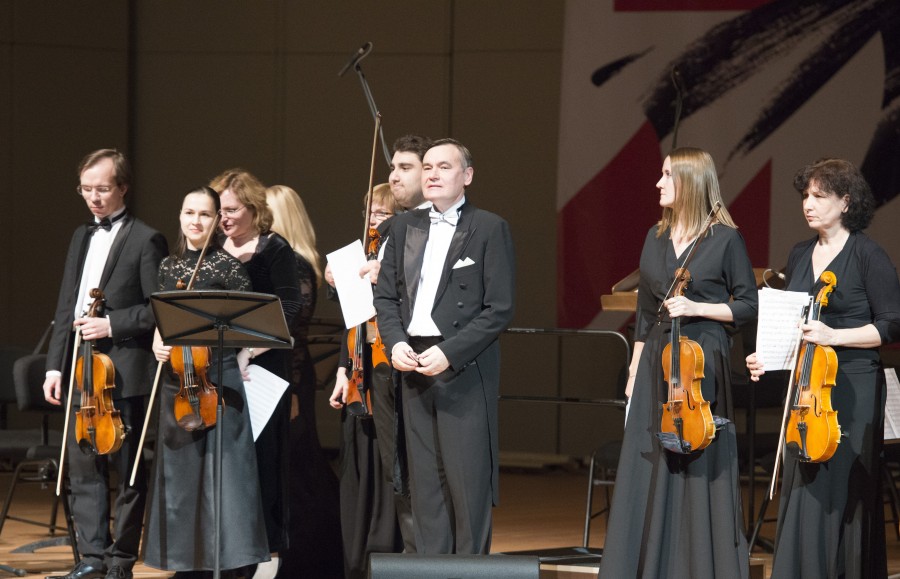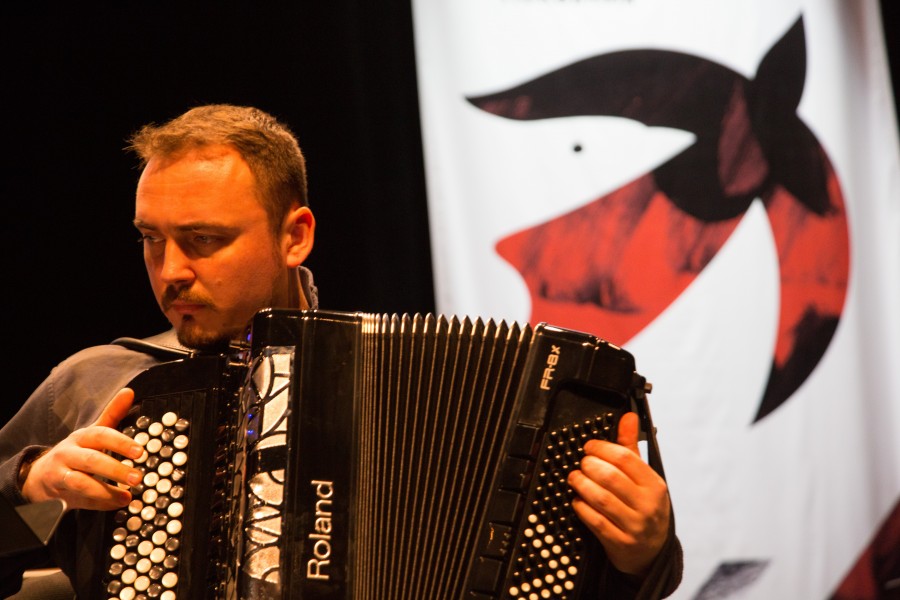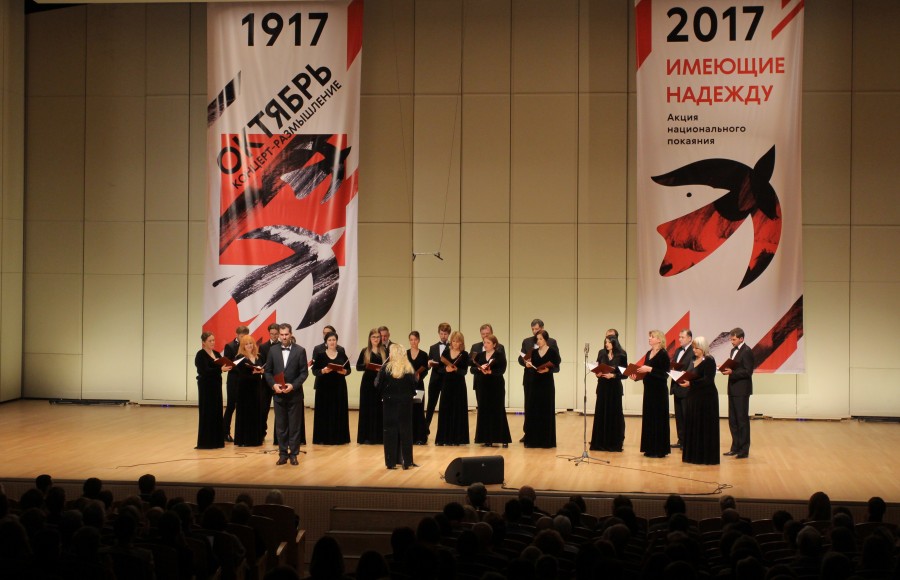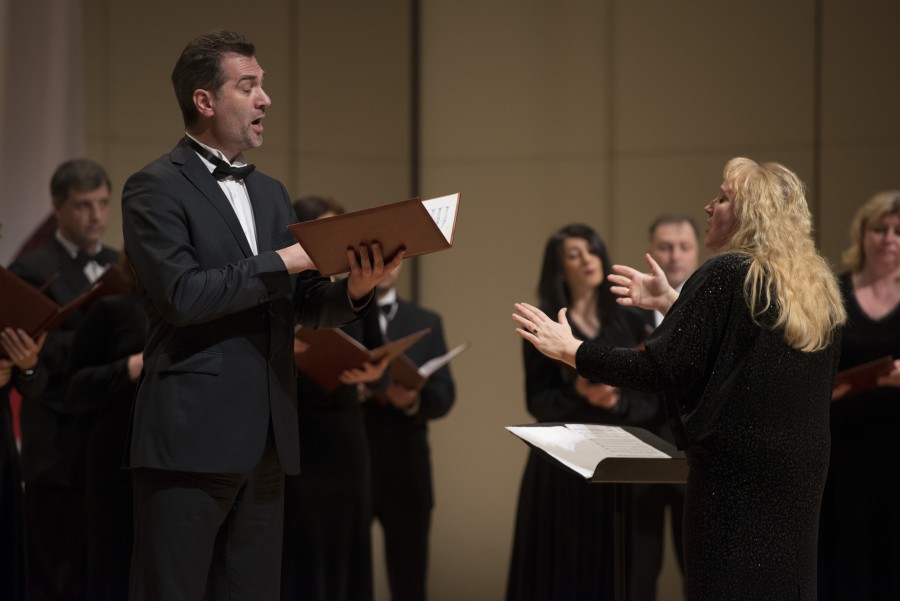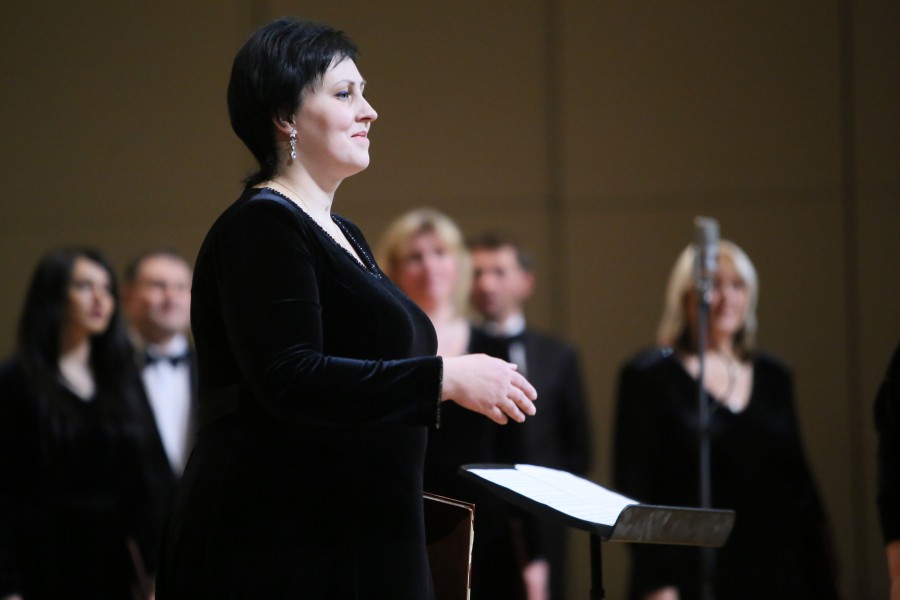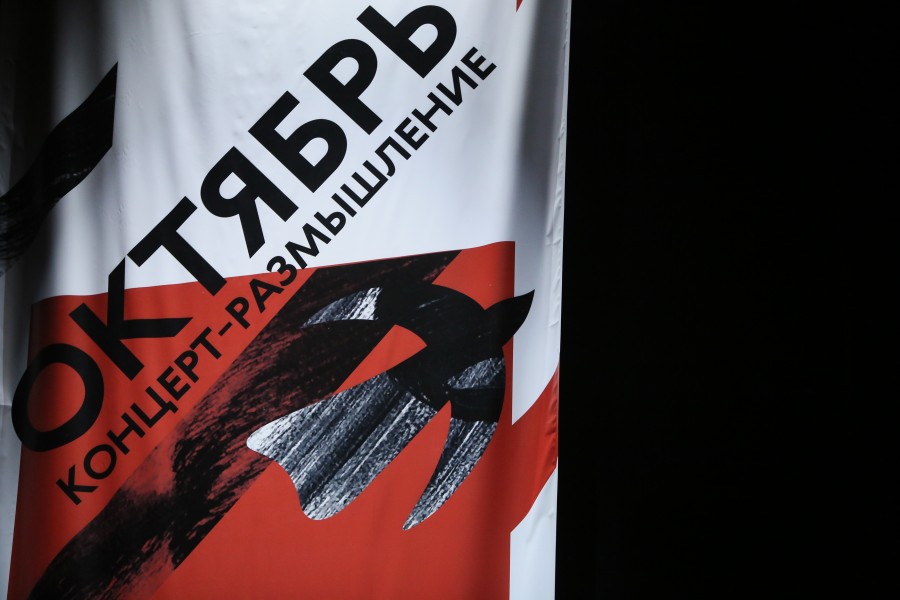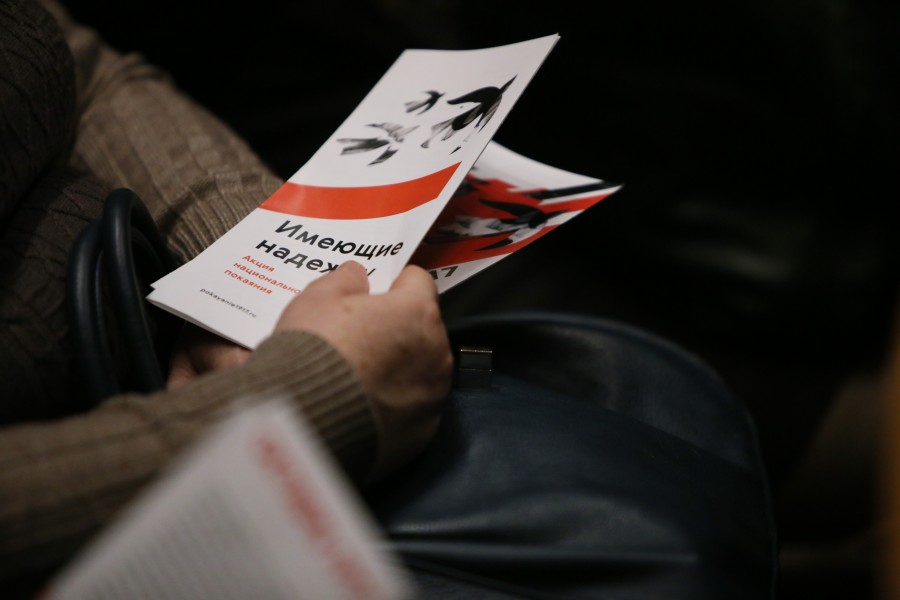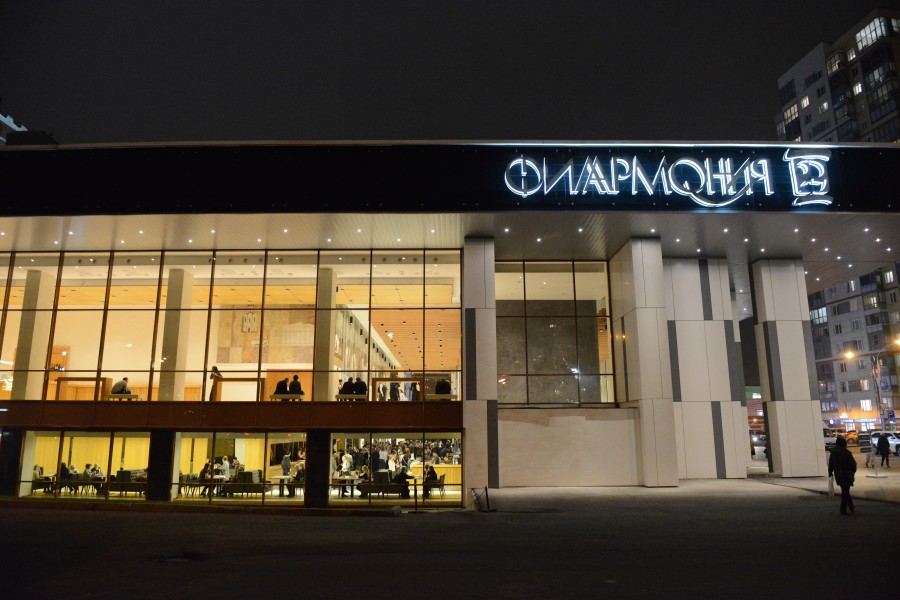The Hundredth Anniversary of the Revolution of 1917 – an Enduring Trial for Russians
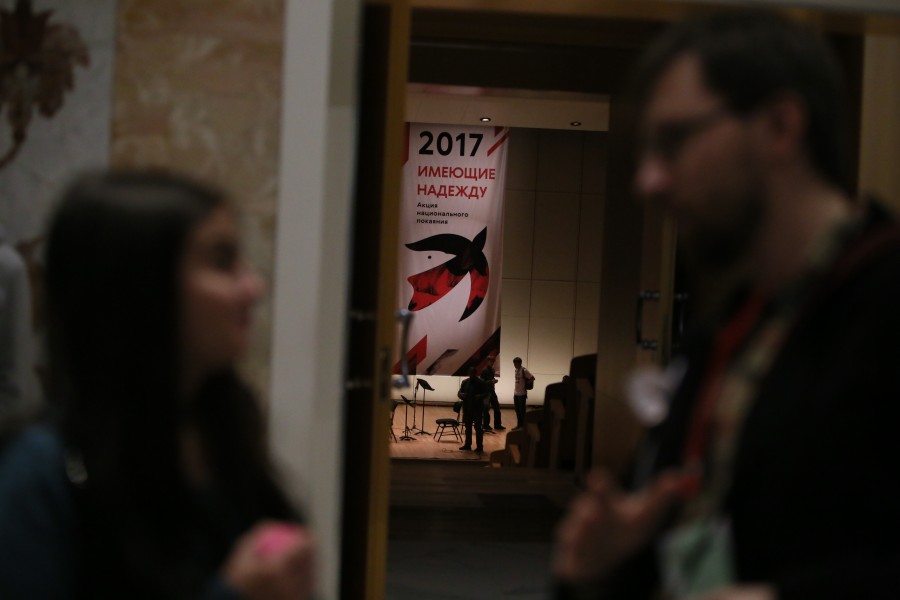
“100 years have passed since the October Revolution of 1917, and we still don’t completely understand it, nor have we exactly worked out how we should feel about the events that took place in that day, though they changed – really turned upside down – the life of an entire, enormous nation. How we relate to the events, however, is changing to this day, and we should like to hope that we are becoming more sober and historically accurate in our understanding of those events which now seem so remote, and yet so entirely close to us, at the same time,” said Dmitry Gasak, Chairman of the Transfiguration Brotherhood, which was one of the concert organizers. “The Contemplative Concert is an attempt to accurately translate the atmosphere of October 1917, and how we relate to and interrelate with the Revolution.”
Gasak suggested that the concert be opened with the observation of a minute of silence for all the victims of the Soviet repression, which began with the events of October 1917.
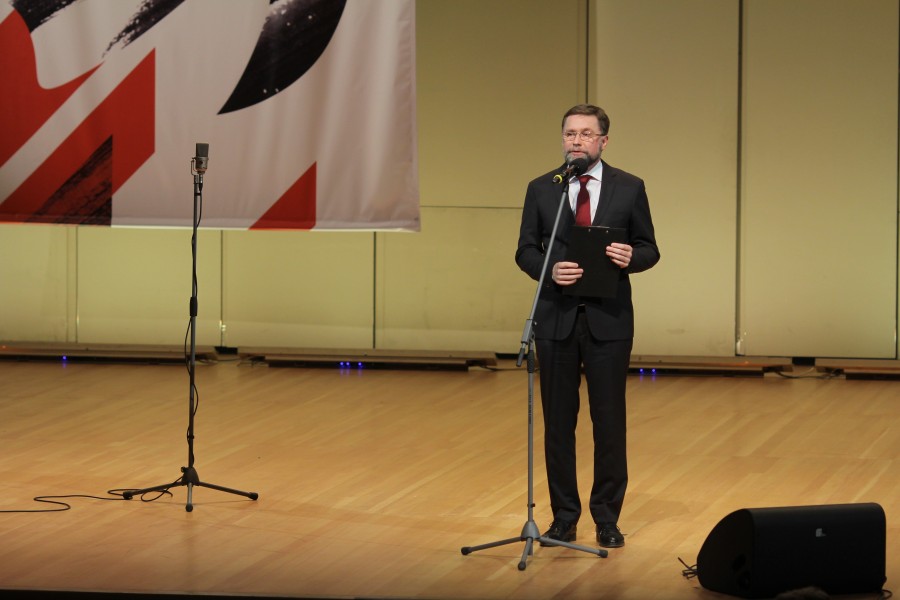
The first portion of the evening treated guests to a theatrical staging of October 1917 by Gregory Lopukhin, the Russian-French Director, and son of the famous publisher and translator, Nikita Struve, which was specially created for the Contemplative Concert. A combination of the traditional drama of antiquity and modern European theatre not only brought to life the historical events of the day, but enabled guests to hear the increasingly alarming roar of the Revolution and feel how the sources of life itself were dimmed and muted by the events. The poetry of Nikolay Gumilyov, Anna Akhmatova, Marina Tsvetaeva and Olga Sadakova, as well as fragments from the memoirs and diaries of Nina Krivosheyin, Zinaida Gippius, Nikolay Berdyev and other contemporaries of the revolutionary events were read during the theatrical staging.
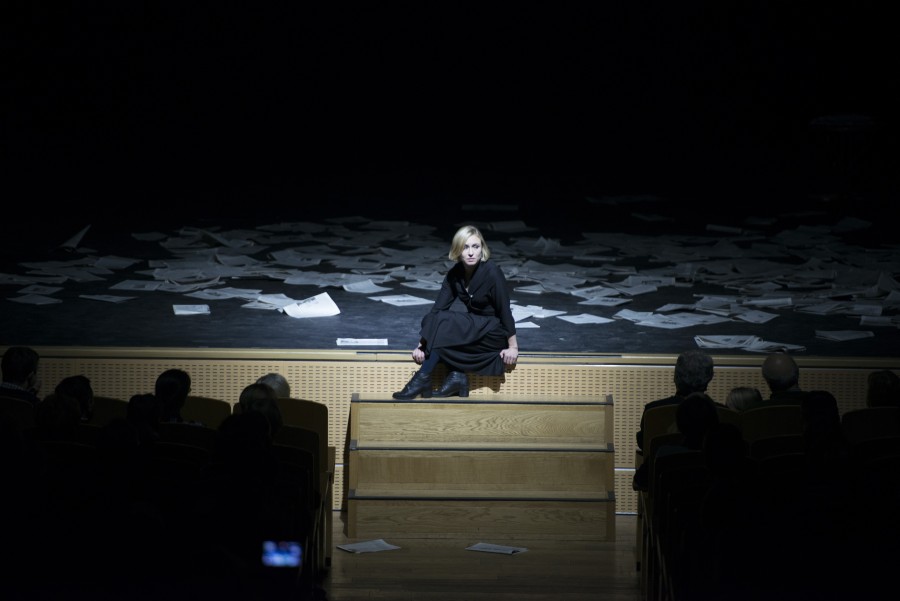
In the second portion of the evening guests heard the music of Sergei Rachmaninoff, Georgy Sviridov, Arvo Part, Sofia Gubajdulina and Edison Denisov, which also imparted the atmosphere of the Revolutionary period that that immediately following. Performers included the Vremena Goda chamber orchestra, conducted by Vladislav Bulakhov, the State Tretyakov Gallery choir from the Church of St. Nicholas in Tolmachi, under the leadership of state-honoured artist Alexei Puzakov and Choirmistress Olga Ushakova, and Stanislav Malyshev, who is a laureate of several international prizes, and plays the digital accordion.
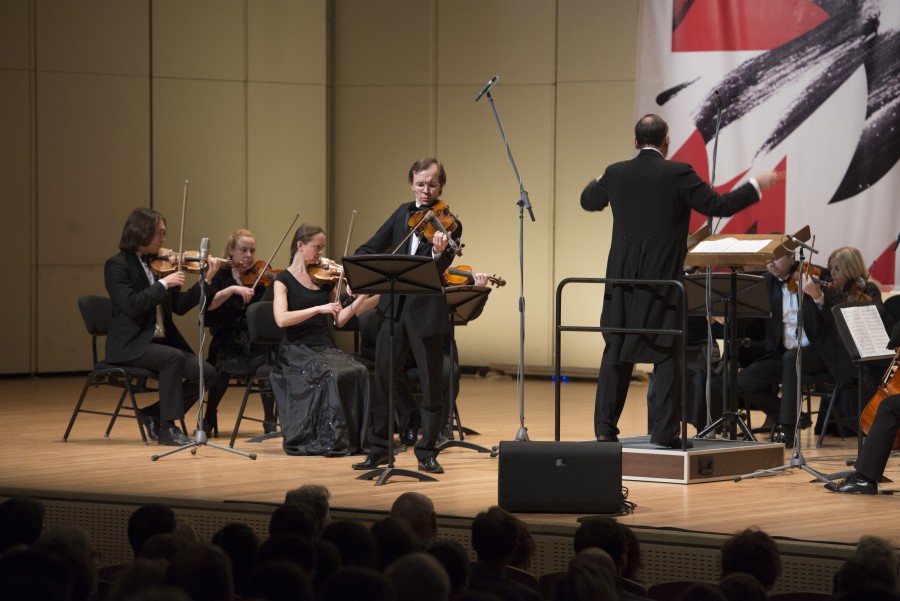
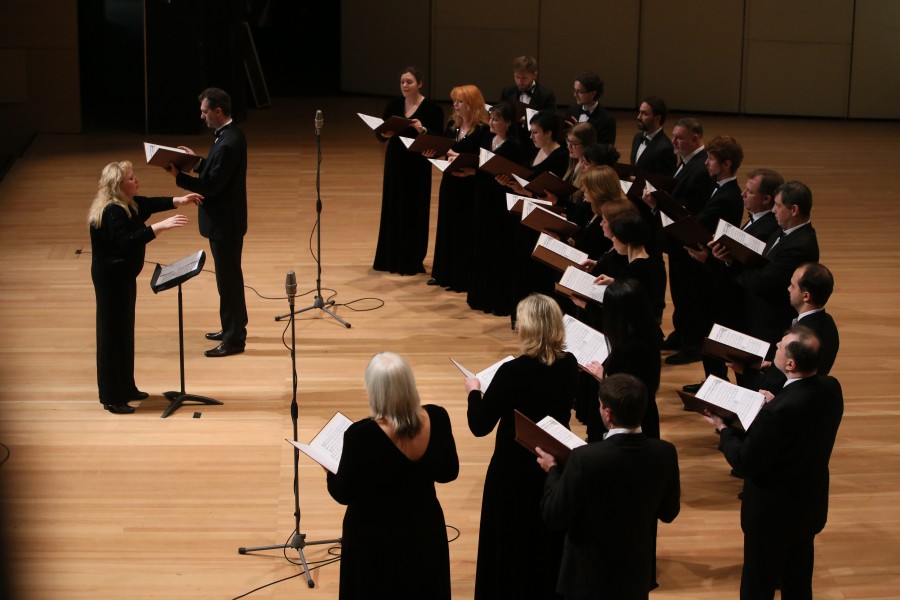
The concert marked the opening of an international conference entitled The Spiritual Consequences of the Russian Revolution: Collective Man and Tragedy for Human Person. This conference marks the end of the Call for National Repentance: Those Who have Hope, and initiative of the Transfiguration Brotherhood which ran throughout 2017, in remembrance of the revolutionary events 100 years ago, and included a number of events with public lectures, presentations and concerts.
We asked the guest and participants of the Contemplative Concert how they believe the Revolution is relevant for those of us today.
“I believe it is one of the central themes which can’t help but be relevant for all of us today who live in our country and aren’t living in a dream land but are interested in the reality of our life. This is because the 100th anniversary involves everyone, and we won’t forget it long into the future,” said Fr. Georgy Kochetkov, spiritual father of the Transfiguration Brotherhood and Rector of Saint Philaret’s Institute. It is a tragedy of the greatest proportions, but also a call for us, on the one hand to get out of the terrible position to which we have fallen, and on the other hand to find a way of “digesting” the experience which over the course of 100 years has been revealed by God. First and foremost I mean the experience of the new martyrs and confessors of our church, but not only these; there were many real heroes who fought against evil and sin, even if they themselves didn’t express themselves in this parlance,” said Fr. Georgy, underscoring that in contemporary society there really are a lot of people who are “fooled by ideology”, as well as many “mankurts”, “who know not their own family, their their roots, or their history”, but whom if even the slightest bit disturbed by a single catchword, call to action or example, instantly react to the theme – and this is a significant majority of our population.”
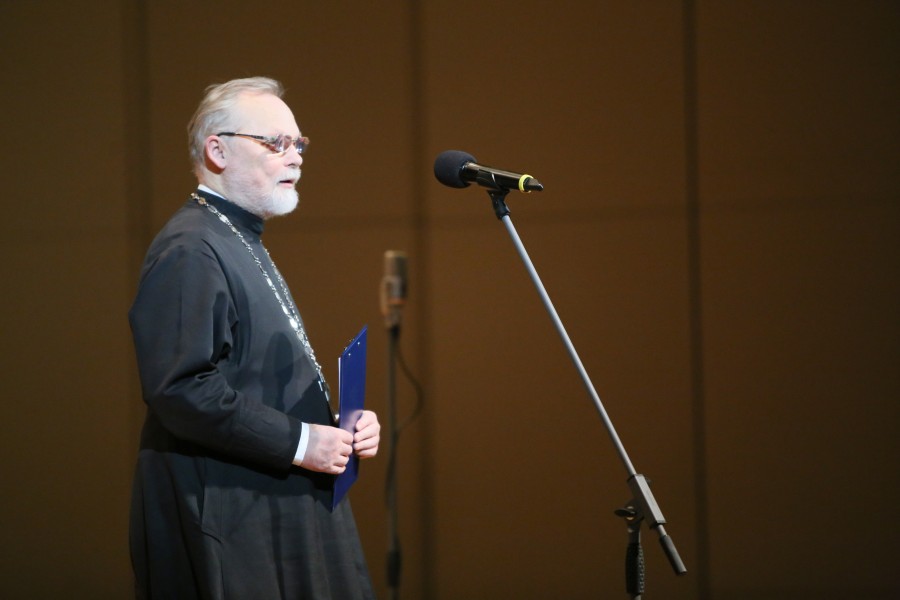
“Society doesn’t consider the topic very relevant: people are, after all, more taken up with what is and what will be in the future,” said scholar Alexey Starobinsky. The conclusion that we should draw as we look at the events of 100 years ago, is that we have to make history ourselves to the extent that this is possible, and not necessary on such a large-scale as the whole nation. When you say “nation”, don’t think that you are talking about someone other than yourself. You, yourself, are that nation. Not all of it, of course, but a part. That which you are doing and desiring is in no way inferior to that which the rest of the nation is desiring.”
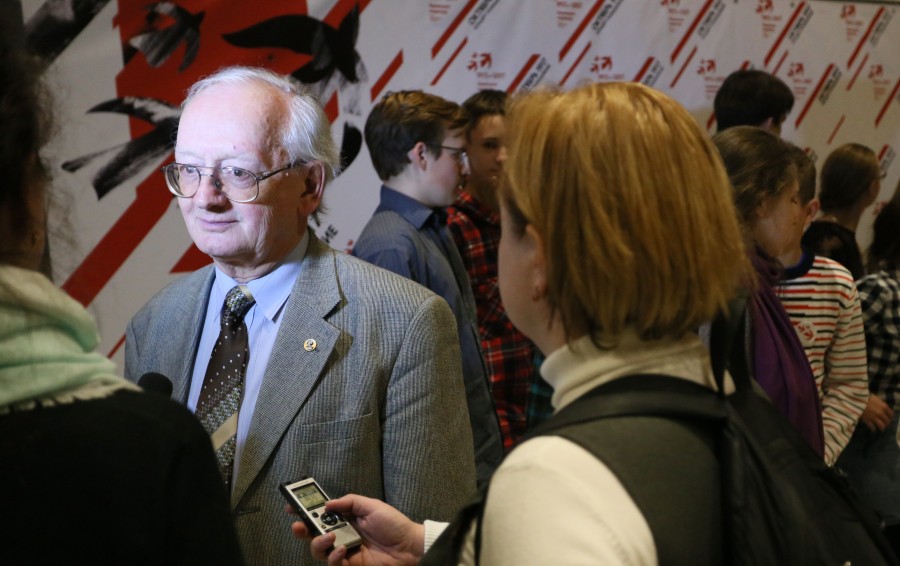
“This topic is relevant for every person, though it is separate question how this relevance is experienced by different people. For me, the relevance is deeply tragic, because it is also the story of my family and my social peers. In general, I believe it is a catastrophe of Russian History, and society has not only failed to work through this consciously, but hasn’t even made that judgment call – judgment has not been pronounced, and this does not bode well for the future,” said Oleg Scherbachev, head of the Dvoryanskoye Sobranije in Russia and the city of Moscow. He noted that “to this very day we deeply feel the absence of those people who were the foundation of the Russian Empire. Russians have changed into something unrecognizable, and this was unavoidable, because 1917 marked the beginning of a genocide of the Russian people – a goal-oriented genocide, which began with the elites in society. This was “anti-selection” and I believe that we will feel the consequences of this genocide for many generations to come.”
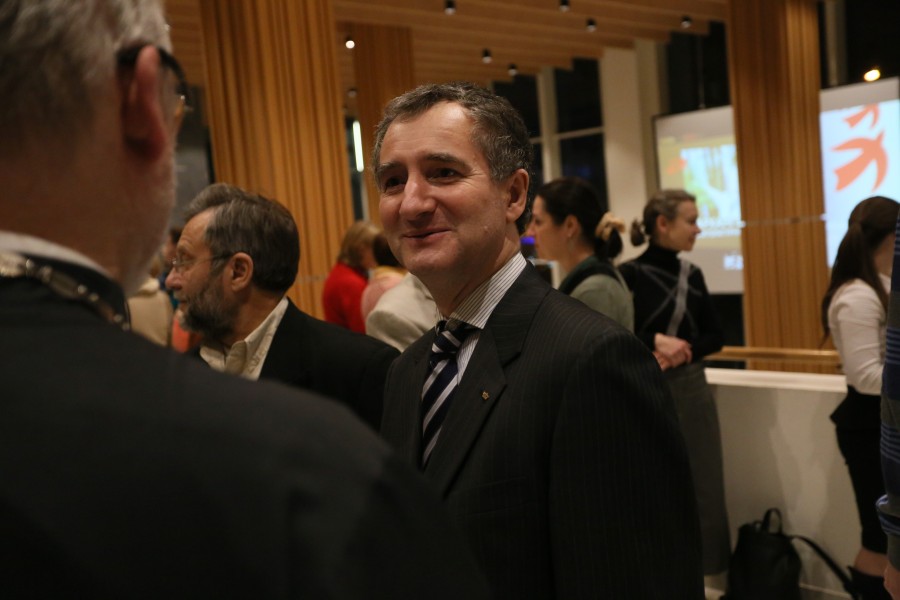
“This event will stay with me and with my children, grandchildren, and of course with my older relatives who lived through this anthropological catastrophe and survived – striving to save their dignity,” said Gennady Burbulis, President of the Strategy Centre. An anniversary is always a trial, but the anniversary of 1917 is an enduring trial for Russian citizens. The anniversary will pass, but the hurt, the tragedy, and the necessity of bearing the responsibility in repentance and cleansing will remain with us forever. If we relate to these events in indifference or with laziness today, or if on the other hand, we continue to naively and good-heartedly consider them great historical events…we can only sympathize with these people and hope that sooner or later they will open their hearts, see through these events, and gain that freedom that comes with pain – that freedom which comes with a spiritual and psychic wound that never heals.”
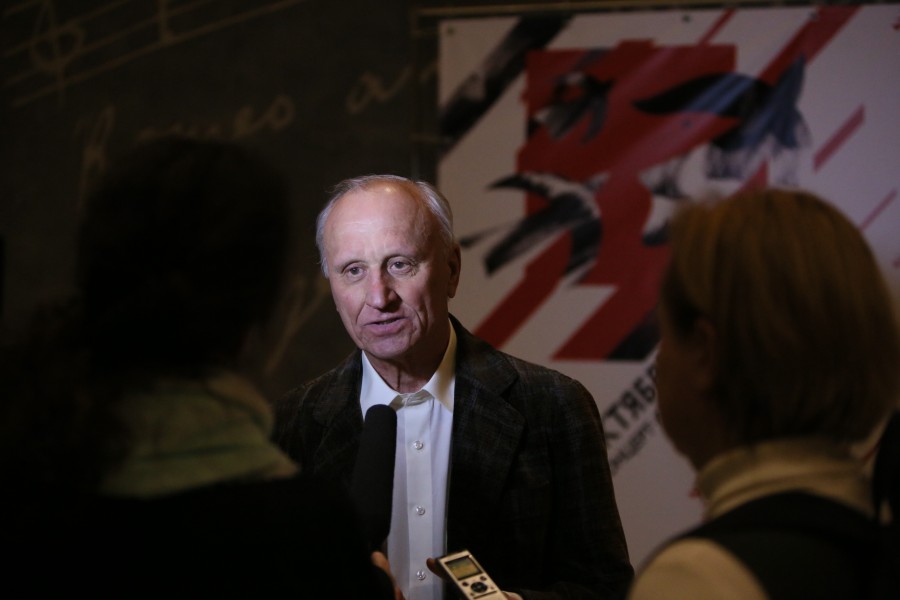
Fr. Georgy Kotchetkov closed the Contemplative Concert by reciting a prayer for Russia written by the founder of the Workers Brotherhood of the Elevation of the Holy Cross, Nikolay Nikolayevich Neplyuev.
Darya Makeeva
Photo: Alyona Kaplina, Alexander Volkov, Maksim Sobolev, Oleg Svechnikov
